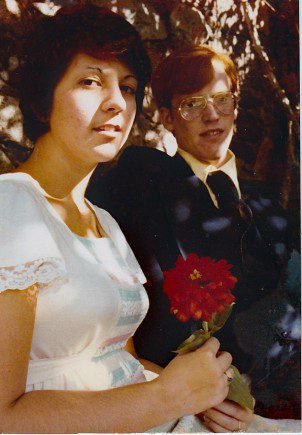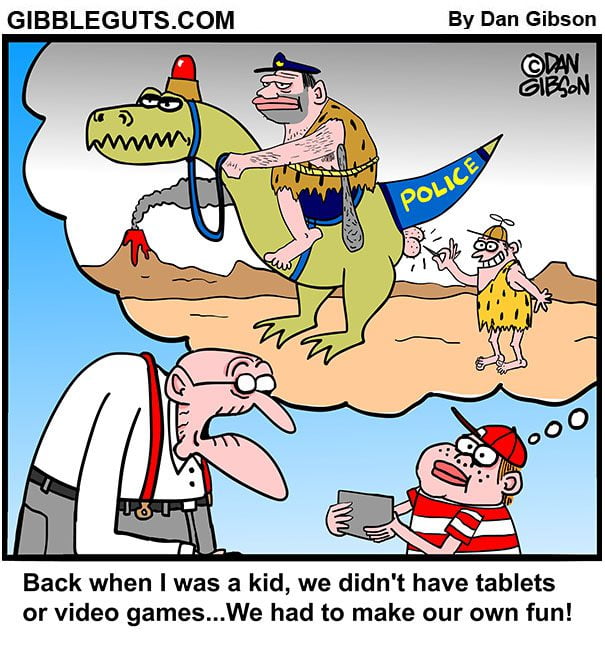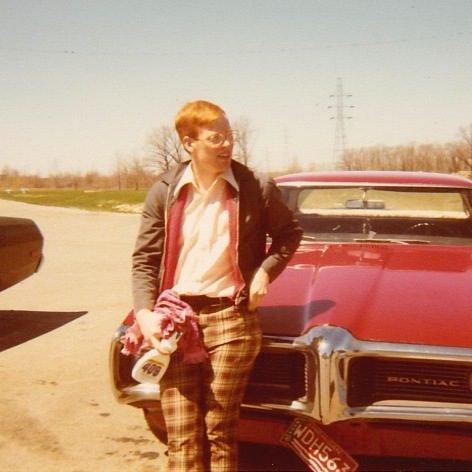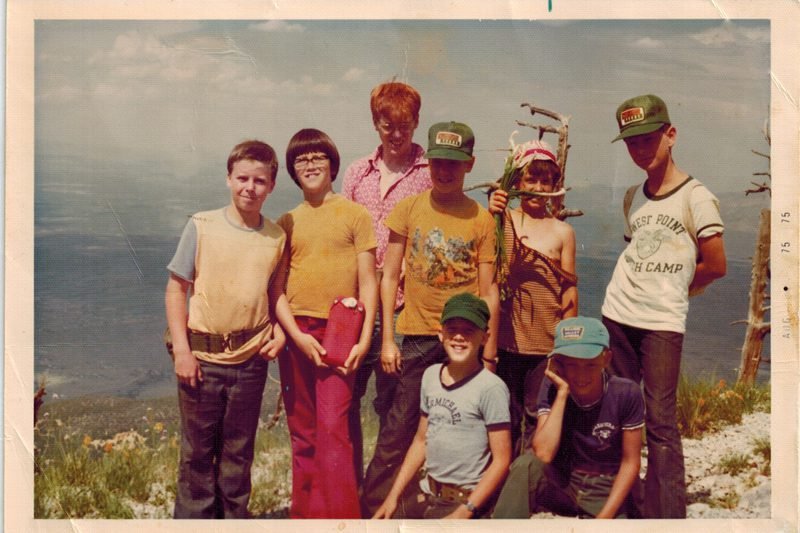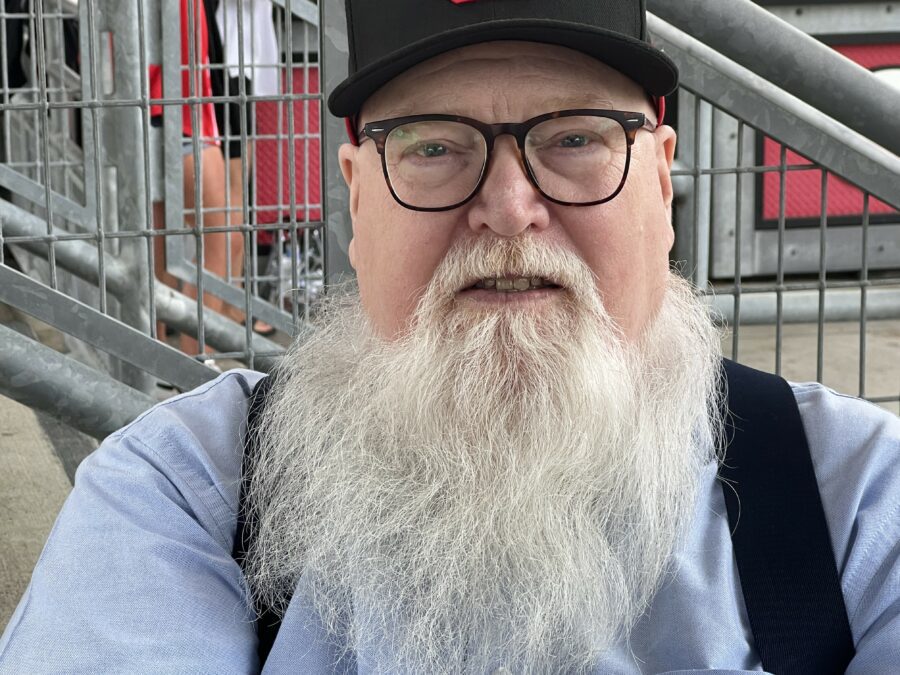
For the person contemplating suicide, he (or she) feels alone. He may be physically surrounded by his family, friends, and fellow employees, but psychologically he feels as if he is stranded by himself on a remote island without supplies. Depression is akin to darkness; a darkness absent of light, even the faint glow of a night light. Everywhere he looks, it is dark.
One of my favorite TV shows is the Showtime hit Dexter. Dexter is a blood spatter expert for Miami Metro Police Department. He is also a serial killer. Using a moral code taught to him by his father, Dexter murders people who “deserve” it. His need to do so Dexter calls “my dark passenger.” Depression is my dark passenger. It lurks in the shadows on “good” days, but on days when I feel overwhelmed and oppressed by things that non-depressives might think are insignificant, my dark passenger envelopes my thinking, telling me life isn’t worth living. My dark passenger pushes me closer and closer to the cliff’s edge, so close that a gust of wind or a stumble will send me careening into the chasm.
Most people who attempt suicide don’t want to die, they just want the pain to stop. Sometimes, people will kill themselves for the silliest of reasons. In the 2000s, I conducted the funeral of an eighteen-year-old man who drove his pickup into a field and killed himself with a shotgun. Why? His girlfriend broke up with him. I suspect this young man felt very much alone. Maybe he tried to share his feeling with his parents, friends, or a guidance counselor. If he did, I suspect they blew it off as the angst that comes when the girl you thought would love you forever wasn’t really into you; that she wanted to play the field or she was interested in dating someone else. Who hasn’t gone through such experiences? Eventually, we moved on; we survived. For this young man, however, his grief overwhelmed him, and he decided life was no longer worth living.
I certainly don’t want to die. I have much to live for: Polly, our six children and their significant others, and our thirteen grandchildren. Two of our grandchildren will graduate from high school this spring. Both are straight-A students and plan to further their educations this fall at major universities. I want to see them walk down the aisle and get their diplomas. Our oldest grandson has a hankering to become a writer. I want to read his first book. Four of our grandchildren are in middle school. Good students, the lot of them, and I want to see how they develop and mature over the next four years. The Cincinnati Reds show promise this year. Is a World Series championship possible in the next few years? And what about those Bengals? They are playing the best football in the history of the franchise. Is a Super Bowl win near, just a Joe Burrow touchdown throw to Ja’ Mar Chase away? Polly turns sixty-five in October. Sometime after that, she plans to retire. We have plans … You see, I (we) still have a bucket list; places to see, and things to experience.
While I don’t want to die, I want my pain to stop — or at the very least lessened to a degree that it doesn’t dominate every waking hour of my life. Of course, that’s not possible. My body doesn’t care one whit what I want. My bones and muscles are waging a zero-sum war where death is the only outcome. I fight back with narcotics, muscle relaxers, NSAIDs, and other drugs, hoping to lessen the pain enough that I can have some sense of meaning and purpose in my life.
As I previously mentioned, when facing deep bouts of depression, it is small things that threaten to push me over the edge. Take last night. We put our mattress and box spring on the floor so it would be easier for me to get in and out of bed. On my side of the bed, there is a 100-year-old oak mission desk. It’s quite close to the bed — about 2 feet away. During the night, I rolled out of bed, smashing ribs-first into the desk. More pain. I swore profusely, dragged myself off the floor, and got on the bed. I quickly fell back asleep. Come morning, I picked up my iPad Pro, only to find that the bottom of the case was wet. That’s when I found out that the half-filled can of Pepsi I left on the desk had toppled over, spraying the wall and leaving a sticky pool on part of the desk. Fuck, I said to myself. Polly came to my assistance, helping me to clean up the mess. What a start to the day.
Polly . . . the one person who truly knows me. She can read me like a book and knows when I am really struggling psychologically. My former counselor told me not to tell her about my struggles with suicide; that it was too much burden to bear. Both Polly and I disagreed with him. Without her, I have no doubt I would be dead. Our lives are very intertwined. When Polly had to have part of her colon and bladder removed and had to have a colostomy, the “care” shoe was on the other foot. Polly spent three weeks in the hospital. Afterward, she was weak and deconditioned. I was the one who had to push her to get up and move; to walk ten laps around the dining room table; then twenty, and so on.
Forty-five years ago, we made a vow to each other: in sickness and in health, until death do us part. We meant it then, and still do today, even after decades of challenges, trials, loss, and suffering. Polly, of course, wants me to live. Who will pay the bills, fix things around the house, and operate the remote? 🙂 And besides, there’s the sex (inside joke). That said, Polly knows I am weary and tired, overwhelmed by constant pain and debility. She knows there may come a time when I no longer want to do this. She has a front-row seat to what my life has become. So we talk. She knows it is important for her to stay connected to me; to not let me fade into the darkness. Sometimes, all I need from her is an embrace; like the time she found me sitting on the floor in tears, having a top-of-the-chart pain day — those days when no amount of narcotics will stem the pain. I told her, sobbing, “I can’t do this anymore.” Polly didn’t try to talk me out of killing myself, nor did she utter the cliches that people who mean well say when they don’t know what else to say. She got down on the floor with me, drew me close, and told me that she loved me. She couldn’t help my pain — no one could. But, just knowing I was loved, that I mattered, helped me get off the floor and to the bed.
I have had two therapists over the past twelve years. Two years ago, I started seeing a new psychologist; one who has extensive experience with treating people who have experienced trauma and have chronic pain. I talk to Melissa once a week. She knows me well by now and is comfortable speaking frankly to me. I struggle with the realization that I will never regain what is lost, be it physical or time-wise. The virile, strong-as-an-ox, invincible, work-a-holic Bruce no longer exists. Photographer Bruce? Gone. Athlete Bruce? Gone. Builder and fixer Bruce? Soon to be gone as I sell off or give away my tools and equipment. Even if I were a relatively healthy sixty-six, I still wouldn’t have the strength of thirty-year-old Bruce. One of the keys in therapy is getting me to embrace things as they are, and not how I want them to be. It is what it is, and no amount of wishing will change this fact. When I fall into delusions of yesteryear, it is Melissa’s job to help me return to reality. I have no future if I can’t see things as they are.
I owe my life to Polly and my counselor. Both of them know that if I am determined to kill myself, nothing they can do will stop me from ending my life. But, they aren’t going to make it easy for me. Melissa asked me how I planned to kill myself. After I told her, she suggested that Polly make it hard for me to have access to certain drugs — a small speed bump to slow me down. Good idea.
What I need most from family and friends is connection; small talk or genuine words of concern. Those who know me, know I love to talk. My oldest son came over tonight for an hour or so. We talked about philosophy, religion, economics, and stupid people. Quickly, my depression lessened. Is it really that simple? I can’t say, for certain, but on this day, talking with Polly, Melissa, and my son made all the difference in the world. Don’t underestimate the power of your words in helping people who struggle to make it to sunrise.
Bruce Gerencser, 68, lives in rural Northwest Ohio with his wife of 47 years. He and his wife have six grown children and sixteen grandchildren. Bruce pastored Evangelical churches for twenty-five years in Ohio, Texas, and Michigan. Bruce left the ministry in 2005, and in 2008 he left Christianity. Bruce is now a humanist and an atheist.
Your comments are welcome and appreciated. All first-time comments are moderated. Please read the commenting rules before commenting.
You can email Bruce via the Contact Form.





